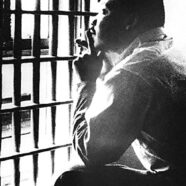Letter from Birmingham Jail Written
April 16 in Black History: The Triumphs and Tragedies of a Momentous Day
Black history is a vital and rich component of American history. On April 16, several events of great importance have occurred, shaping the lives of African Americans and the nation as a whole. This article will explore the milestones, both triumphant and tragic, that took place on this day in history.
Emancipation Compromise – April 16, 1862. One of the most significant events to happen on April 16 in Black history was the Emancipation Compromise in 1862. This legislation, signed by President Abraham Lincoln, abolished slavery in Washington, D.C., freeing over 3,000 enslaved African Americans. This event was a precursor to the Emancipation Proclamation, signed later that year, which declared freedom for all enslaved people in Confederate territories.
Letter from Birmingham Jail – April 16, 1963. On April 16, 1963, civil rights leader Dr. Martin Luther King Jr. penned his famous “Letter from Birmingham Jail.” Arrested for participating in nonviolent protests against racial segregation, Dr. King wrote this passionate letter in response to a public statement by eight white Alabama clergymen. The letter, which eloquently advocated for nonviolent direct action, became essential in the civil rights movement.
The Tragic Case of George Stinney Jr. – April 16, 1944. On a more somber note, April 16, 1944, marks the wrongful arrest of 14-year-old George Stinney Jr., who was accused of murdering two young white girls in South Carolina. Stinney, an African American, was the youngest person to be executed in the United States in the 20th century. His trial and execution have been criticized for lacking due process and fairness. In 2014, his conviction was posthumously vacated, acknowledging the grave injustice that had occurred.
Conclusion
April 16 is a day marked by both progress and tragedy. The Emancipation Compromise and Dr. King’s Letter from Birmingham Jail represent important steps in the fight for civil rights and equality. Conversely, the wrongful arrest and execution of George Stinney Jr. serve as a haunting reminder of the injustices that have occurred in the struggle for racial equity. By remembering and acknowledging these events, we can learn from our past and work towards a better future.
Bibliography:
- Foner, E. (2010). The Fiery Trial: Abraham Lincoln and American Slavery. W.W. Norton & Company.
- King, M. L. (1963). Letter from Birmingham Jail. Retrieved from https://www.africa.upenn.edu/Articles_Gen/Letter_Birmingham.html
- Jones, I. (2014). George Stinney, 14, Executed In Vile Act Of Injustice, Exonerated 70s Years Late By South Carolina Judge. Retrieved from https://atlantablackstar.com/2014/12/18/george-stinney-14-executed-vile-act-injustice-exonerated-70-years-late-south-carolina-judge/











